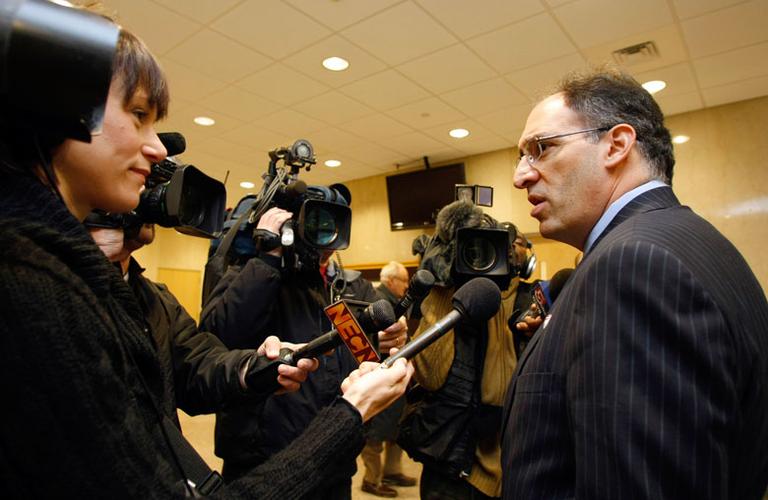Advertisement
Khazei Can Still Be The Change — Just Not In Washington
Reporter's Notebook
As supporters started to trickle in to Alan Khazei's campaign party on primary election night, there was a noticeable change in the candidate who had promised to be the change.

Despite claims from his campaign organizers and from Khazei himself that there had been a late “surge” of support at the polls in their favor, their faces and body language told a different story. The polls were still open, but this candidate, often described as naive and idealistic, looked wizened and beaten.
Even taking into account his admission that he had been campaigning through the night, Khazei was no longer carrying himself as a relentless optimist eager to discuss his vision. Khazei was repeating the same themes about "big citizenship" and "grassroots movements," but his eyes held the knowledge of defeat.
To several reporters, he patiently repeated the story of his disappointment in the day’s low voter turnout and that it is likely more voters knew about Tiger Woods' marital problems than that 30,000 more U.S. troops are going to Afghanistan. Alan Khazei had mastered the sound bite — but the election was over.
The change in energy from the campaign trail to the ballroom at the Omni Parker House hotel that night was palpable. Yes, there were balloons, large television screens, big Khazei signs and loud music, but the campaign staffers were having difficulty smiling. The ballroom crowd was primarily young — I'd guess 70 percent of the room was under 30. There were many young families there, but any "surge" of leading Massachusetts Democrats was noticeably absent.
When the polls closed at 8 p.m., some Khazei supporters were still speaking with clear-eyed optimism, but many of those who talked with us about Khazei during the campaign were not buying drinks at the bar.
As reporters bringing you the results on primary night, we could tell you what Khazei was saying, we could tell you that his supporters were still expressing confidence (which, of course, is no shock in a roomful of people who are working to change the world), but how do we tell you about the cloud of loss on Khazei’s face?
We could and did tell you that a few supporters were beginning to say that they wished the campaign had more time or money, but if we tried to describe the “change in energy,” we would most assuredly have joined the already long line of unemployed journalists.
The facts weren’t known yet, but they were pretty clear. About an hour after the polls closed when Coakley was declared the winner, there was almost a sense of relief among the crowd that they could finally talk openly.
There’s no question the world needs people like Alan Khazei. He started the City Year program, which sends thousands of young volunteers to work in urban areas. His organization Be The Change helps bring about what Khazei calls “high impact” social change.
But how will Khazei’s loss in the Massachusetts senate race affect those efforts? Will his enthusiasm and his belief in his ability to change the world be dampened? If so, will that help his efforts or crush them? Will a new, wiser Khazei be more politically savvy? Or will he have become almost too street-wise to have the ideals to be the change he wants to see in the world?
We can only hope that although Mr. Khazei will not go to Washington, he will still believe enough in people and in himself to make good on his promises to spearhead anti-poverty programs and work on equity issues for the low and middle classes. He just won’t be doing that as a politician.
This program aired on December 9, 2009. The audio for this program is not available.
